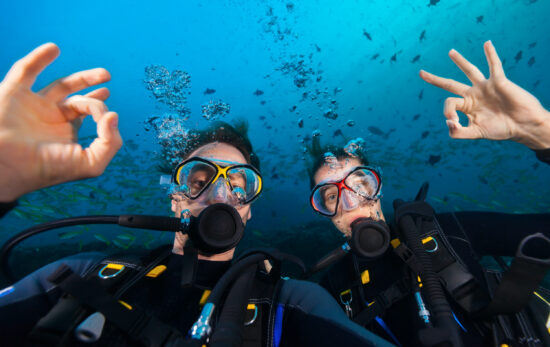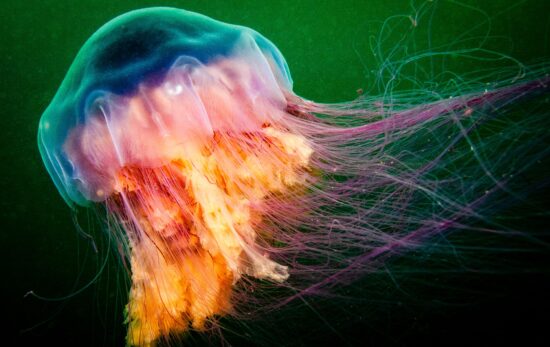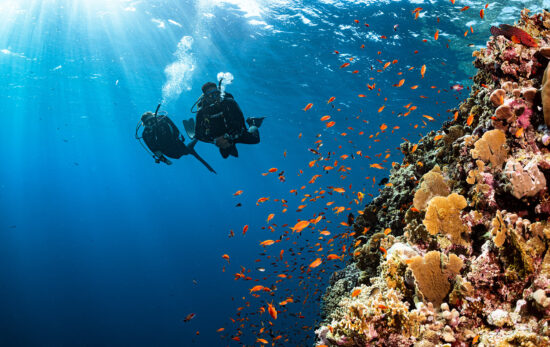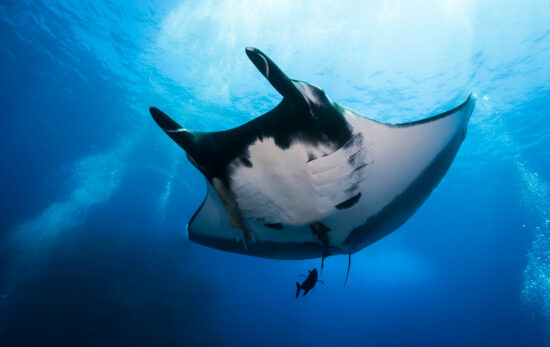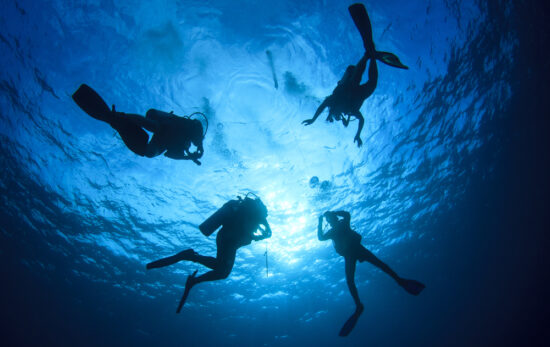Scuba diving with a buddy is safer and more fun than scuba diving solo. Imagine you’re out there alone and a family of whales passes by. It’s an amazing moment but also a bummer because:
#1 There’s no one to share the experience with
#2 You don’t have a witness to confirm this unbelievable story
So why would anyone scuba dive solo? Is it even legal to scuba dive alone?
In this article, we’ll answer all your questions about solo scuba diving and explain the PADI® solo diver certification course Self Reliant Diver.
But first, a story.
One day I was teaching an Advanced Open Water Diver course with four students (two buddy teams) and no divemaster. One overly clever student asked me, “who’s your dive buddy?” I expressed hope the student divers would look out for me, but technically he was right. I didn’t have a designated dive buddy.
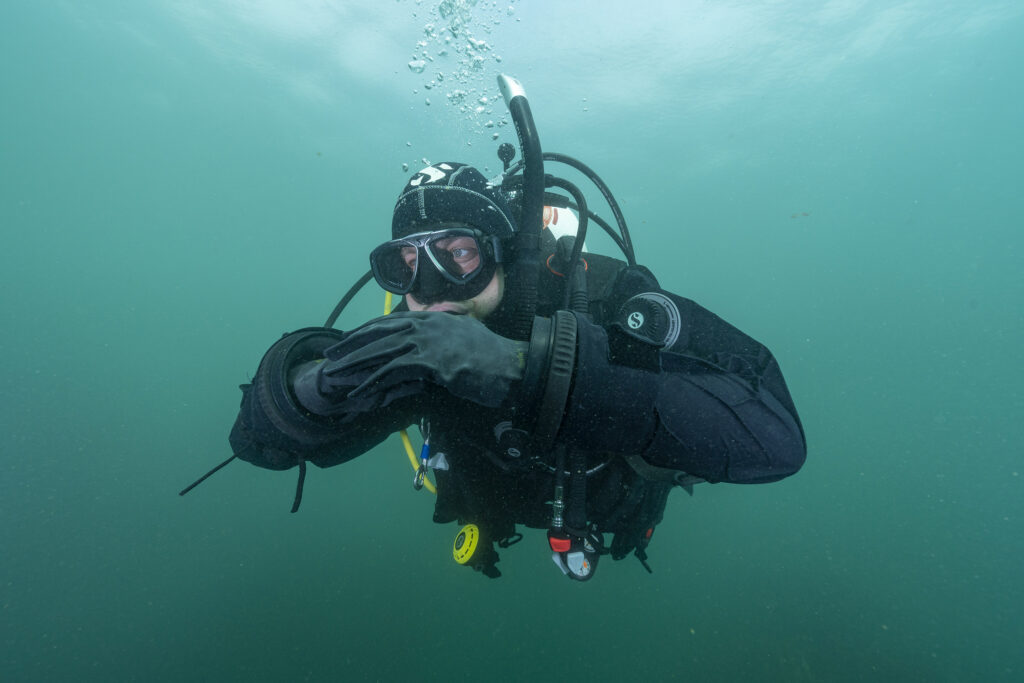
Dive professionals like me aren’t the only ones who may find themselves diving semi-independently. If you’ve ever been buddied up with a passionate photographer or videographer, you know what I mean.
Is it safe to scuba dive alone?
Unless you have an insanely reckless buddy, it’s always safer to dive with someone else. At the very least, they’re an ambulatory second air source who can come to your aid.
That said, some people take a “same ocean, same day” approach to being a dive buddy. If you often find yourself more than a few fin kicks from your buddy, the PADI Self-Reliant Diver course will teach you potentially lifesaving skills.
PADI Self-Reliant Diver Course
Learning to dive independently is for experienced divers only. I want to put a big emphasis here on “experienced.” To enroll in the PADI Self-Reliant Diver course, you need to be:
- At least 18 years old
- A PADI Advanced Open Water Diver
- With 100 logged dives
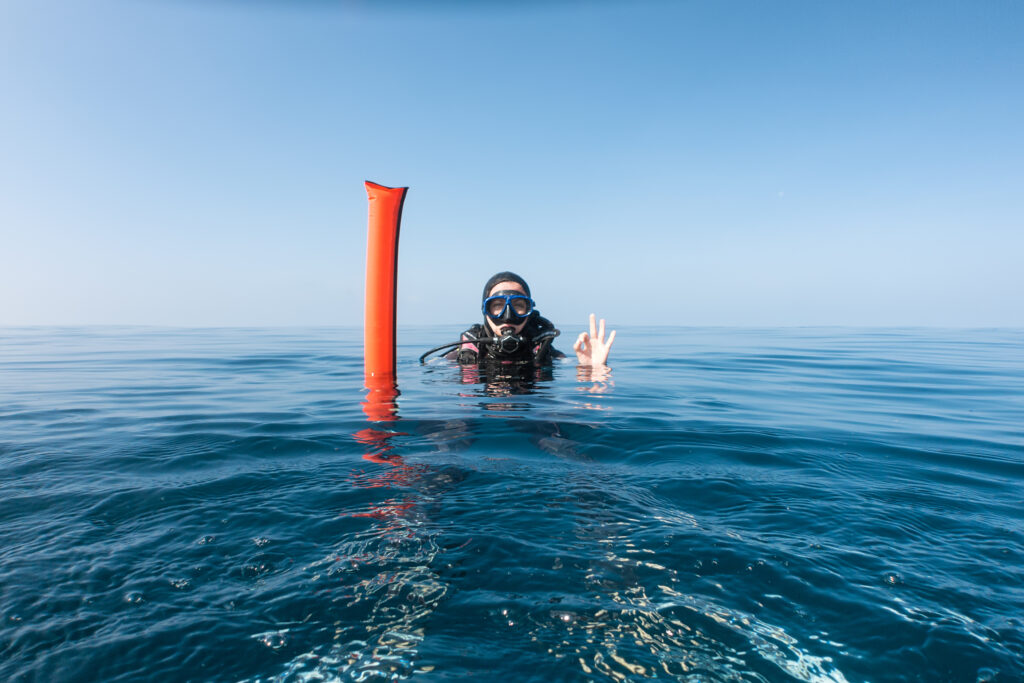
Solo scuba diving means you’re on 100% your own. If a problem arises, it’s up to you to solve it. That’s why the Self-Reliant Diver course includes practice:
- Swimming without a mask
- Navigating to various points, including your exit
- Using a surface marker buoy (DSMB)
- Carrying and switching to a redundant air supply
- Calculating exactly how long your dives should be
If you have the discipline to follow self-reliant diving techniques, solo diving can be an exciting new adventure. Even if you’re not interested in the thrill of scuba diving alone, learning how to handle problems on your own can make you a more confident diver – with or without a buddy.
Is it legal to scuba dive alone?
A PADI Self Reliant Diver certification does not guarantee you will be allowed to scuba dive alone. Individual countries and dive operators may have rules and regulations that require diving with a buddy.
To learn more about the PADI Self Reliant Diver course or to enroll, contact a PADI Dive Shop.
Related Reading
- PADI AmbassaDiver™ Alex in Wanderland’s Self Reliant Diver Experience
- Divemaster Rianne tries solo diving
- How to Find Dive Buddies

